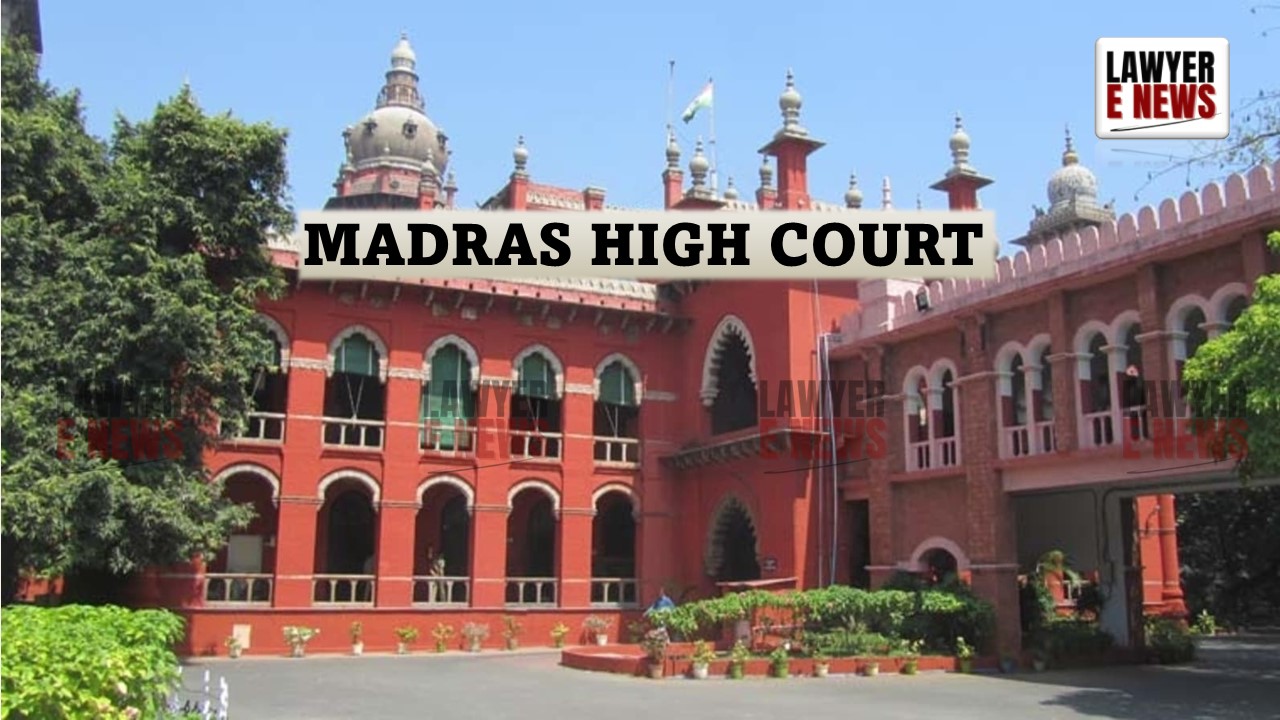-
by Admin
15 February 2026 2:36 AM



Madras High Court, presided over by Justices M.S. Ramesh and C. Kumarappan, acquitted Selvam, Karthick, and Tamilarasi in Selvam & Ors. v. State (Crl.A. No. 83 of 2019), overturning their conviction for the murder of Varathappa Gounder. The court found that the testimony of the sole prosecution witness, PW1, the third wife of the deceased, was unreliable and uncorroborated. The prosecution's failure to establish a clear motive and connect the recovered weapons to the crime led the court to conclude that the conviction was unsustainable.
The appellants—Selvam (A1), Karthick (A2), and Tamilarasi (A3)—were convicted by the trial court for the murder of Selvam’s father, Varathappa Gounder, and sentenced to life imprisonment under Section 302 read with Section 34 of the Indian Penal Code (IPC). The prosecution alleged that the appellants, motivated by a property dispute, attacked the deceased with wooden logs, resulting in his death on the spot. The trial court convicted the appellants based on the testimony of PW1, the third wife of the deceased and an alleged eyewitness, as well as the recovery of the weapons.
The High Court addressed several key legal issues, including the reliability of the sole eyewitness testimony, the prosecution's claim of motive, and the circumstantial evidence regarding the recovery of weapons.
Reliability of Sole Witness (PW1): PW1, the third wife of the deceased, claimed to have witnessed the appellants attacking her husband. However, the court found significant contradictions in her testimony. While she initially claimed that PW2 and PW9 were also present during the incident, both witnesses denied witnessing the murder. The court observed that PW1’s inconsistent statements and the absence of corroborating testimony made it unsafe to rely on her evidence alone to convict the appellants (Paras 11, 13, 15).
Motive and Enmity: The prosecution's case was based on a property dispute between the deceased and the appellants. However, the court found that the enmity between PW7 (the son of PW1) and the deceased was more prominent. Fifteen days before the incident, PW7 had attacked the deceased, and it was the appellants who had intervened to save the deceased. This weakened the prosecution's claim that the appellants had a motive to kill the deceased (Paras 12, 13, 16).
Circumstantial Evidence – Recovery of Wooden Logs: The trial court had relied on the recovery of wooden logs allegedly used in the attack. However, the forensic report was inconclusive regarding the blood stains found on the logs. The High Court noted that without a conclusive link between the recovered weapons and the crime, the circumstantial evidence was insufficient to sustain the conviction (Paras 19, 20).
Delay in FIR and Investigation: The court also raised concerns about delays in filing the FIR and inconsistencies in the sequence of events, particularly regarding the communication between PW1 and PW8 after the incident. These discrepancies further undermined the prosecution’s case (Paras 7, 17, 18).
The High Court emphasized that the conviction of the appellants was based solely on the testimony of PW1, which was riddled with inconsistencies and lacked corroboration. The court referred to the principles laid down in Marwadi Kishor Parmanand v. State of Gujarat (1994), reiterating that a conviction based on unreliable or uncorroborated evidence is unsustainable. The court noted that while PW1’s testimony was not entirely reliable, it was also not wholly unreliable, and without corroboration, it could not form the sole basis for a conviction.
Furthermore, the court found that the alleged motive was weak, as there was more credible evidence of enmity between the deceased and PW7, not the appellants. The circumstantial evidence, including the recovery of wooden logs, failed to establish any connection between the weapons and the crime.
The Madras High Court allowed the appeal, setting aside the conviction and life sentence of the appellants. The court acquitted the appellants of all charges and ordered the refund of the fine imposed by the trial court. The bail bonds of the appellants were canceled, and the court concluded that the prosecution had failed to prove the case beyond a reasonable doubt.
Date of Decision: September 20, 2024
